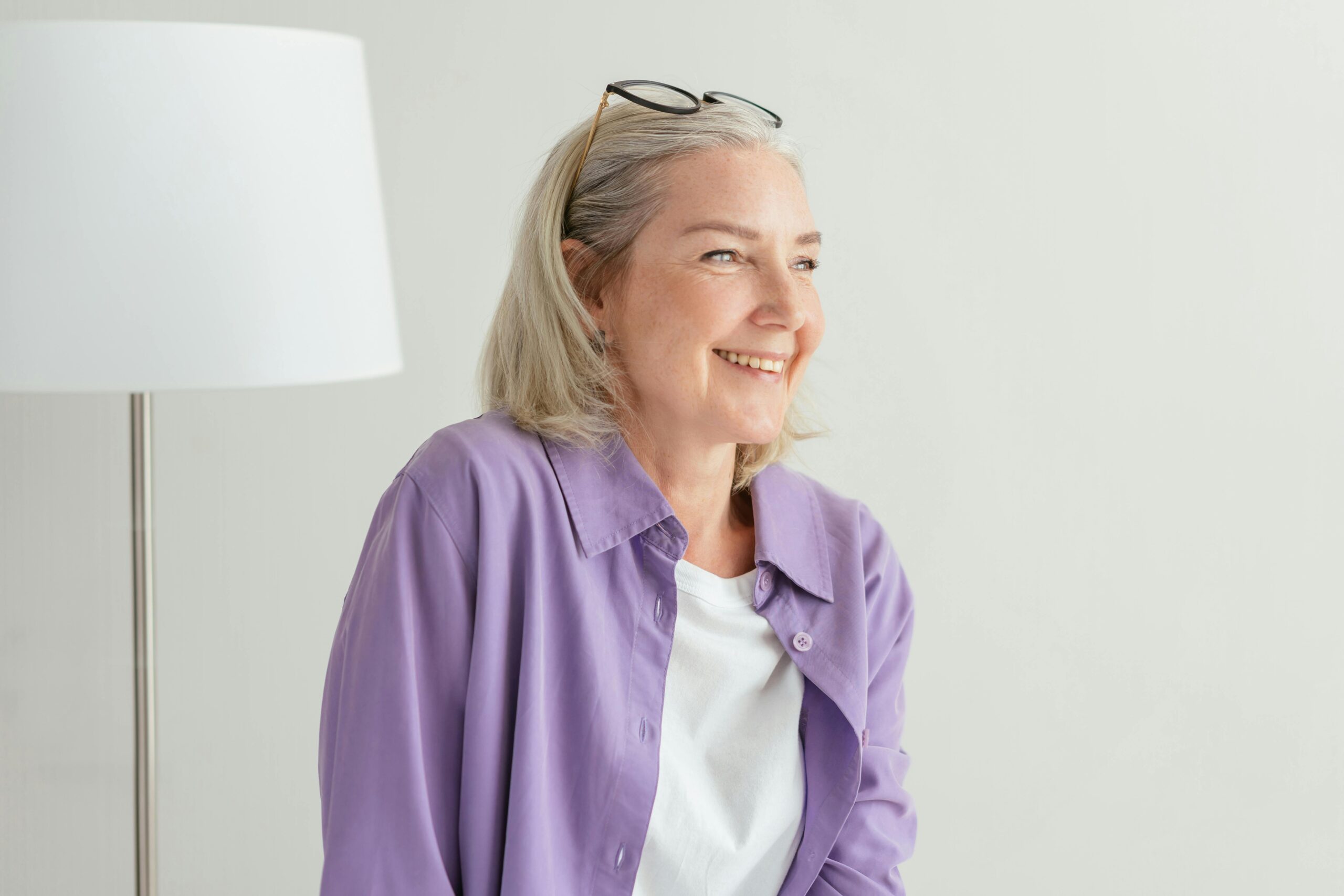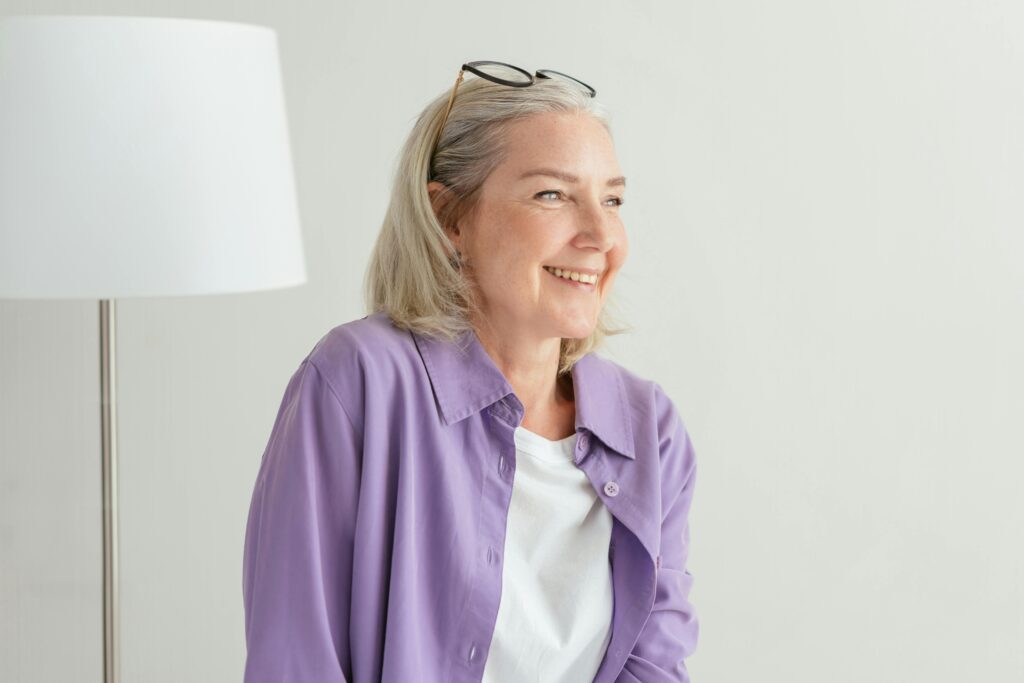Eating Disorders in Older Adults: An Overlooked Population

Posted In
July 29, 2024
Posted On
Hey there!
ED RECOVERED. PITTIE mom. NATURE lover, salsa dancer.
I'm Cheryl
I’m an Eating Disorder Recovery Coach with a BA in Psychology and Nursing, along with a Foundation Certificate in Counseling.
Read my story.
Shedding Light on a Hidden Struggle
When the topic of eating disorders (EDs) arises, the image that frequently springs to mind is that of a young woman, perhaps a teenager or in her early twenties. Public awareness campaigns, media coverage, and even medical research predominantly focus on these younger populations. However, the reality is that eating disorders do not discriminate by age. Eating disorders in older adults, especially women over 40, are a serious issue that often remains under the radar.

The Unique Challenges of Older Women
For many women over 40, life enters a phase of significant change. This period can be marked by transitions such as children leaving home, the onset of menopause, the end of a marriage, or even the need to care for aging parents. Each of these situations brings its own stressors and can reignite or worsen feelings of anxiety, depression, and low self-esteem—all of which can be potential triggers for an eating disorder.
Moreover, societal pressures on aging women compound these personal changes. The relentless emphasis on youth and thinness can lead to a heightened fear of aging and weight gain, exacerbating pre-existing or leading to new disordered eating behaviors. Unlike their younger counterparts, older women often grapple with the additional fear of invisibility, which can fuel the psychological underpinnings of an eating disorder.
Symptom Presentation and Health Impacts
The symptoms of eating disorders in older adults might mimic those in younger individuals, including restrictive eating, binging, purging, and excessive exercise. However, the physical effects can be even more severe. Older bodies are generally less resilient and slower to recover, meaning that the impact of an eating disorder can be both more immediate and more damaging. Issues such as osteoporosis, cardiac problems, and other chronic conditions are exacerbated by poor nutrition and can significantly complicate treatment.
The Diagnostic and Treatment Gap
One of the primary challenges in tackling eating disorders among women over 40 is the lack of recognition and resources. Both the public and professionals may overlook signs of an eating disorder, attributing weight loss or other symptoms to aging or medical conditions rather than an eating disorder. This diagnostic overshadowing can delay or prevent effective interventions.
Furthermore, most treatment protocols and support systems are designed with younger individuals in mind. These programs often focus on issues like peer pressure and body image in the context of adolescence and young adulthood, which may not resonate with an older demographic. There is a pressing need for treatment approaches that address the unique life stages and challenges faced by older women.

Moving Forward: Awareness and Action
The first step towards better support for women over 40 suffering from eating disorders is increased awareness. Healthcare providers, families, and communities need to be educated about the prevalence and seriousness of eating disorders among older adults. Screening practices should be adjusted to include patients of all ages, ensuring that those in need are identified and offered help.
In terms of treatment, personalized care is crucial. Therapeutic approaches should consider the specific life context of the individual, with a focus on holistic recovery that addresses both mental and physical health. Support groups and counseling tailored to older adults can provide both age-relevant support and a sense of community, reducing the isolation that often accompanies these disorders.
Breaking the Silence
Eating disorders are a critical issue among women over 40, though they largely remain an invisible crisis. By shifting the narrative to include older adults in discussions of EDs, we can begin to dismantle the barriers to effective care and support for these individuals. If you or someone you know is struggling, it’s crucial to remember that it’s never too late to seek help and that recovery is possible at any age.
My own journey to recovery from bulimia began in my 40s, when I finally reached out for help. With the guidance and support of a dedicated coach, I was able to understand my triggers, develop healthier coping mechanisms, and ultimately, find peace with food. This transformative experience has fueled my passion to help others on their own paths to recovery.
Eating disorders are complex, but understanding and support can make a significant difference. Let’s ensure that women of all ages receive the attention and care they deserve.
If you’re caught in the cycle of eating disorder behaviors, there’s hope and support for you. Schedule an intro call to explore your options. You’re not alone—I’m here for you.
If you’re an older adult seeking connection and support from peers, click here to explore available support groups for older adults through ANAD.
Related
Pin
Share
next Story
Previous Story
Cheryl Pomario is a certified eating coach with a background in psychology and nursing, offering personalized coaching to help individuals overcome disordered eating.
Cheryl Pomario is a certified eating coach with a background in psychology and nursing, offering personalized coaching to help individuals overcome disordered eating.
Cheryl Pomario is a certified eating coach with a background in psychology and nursing, offering personalized coaching to help individuals overcome disordered eating.